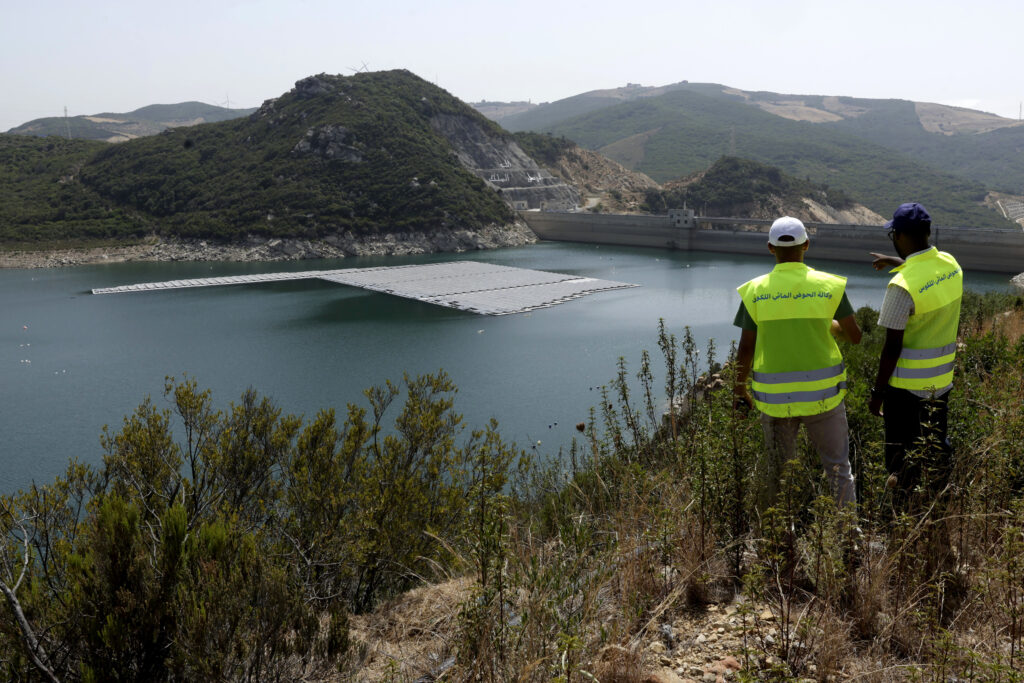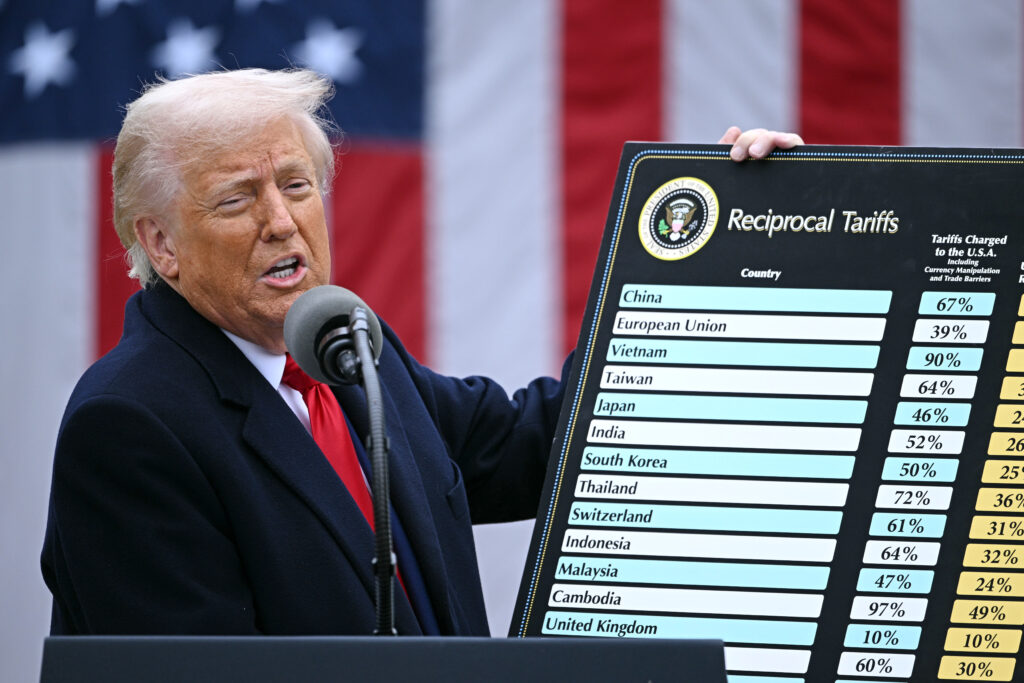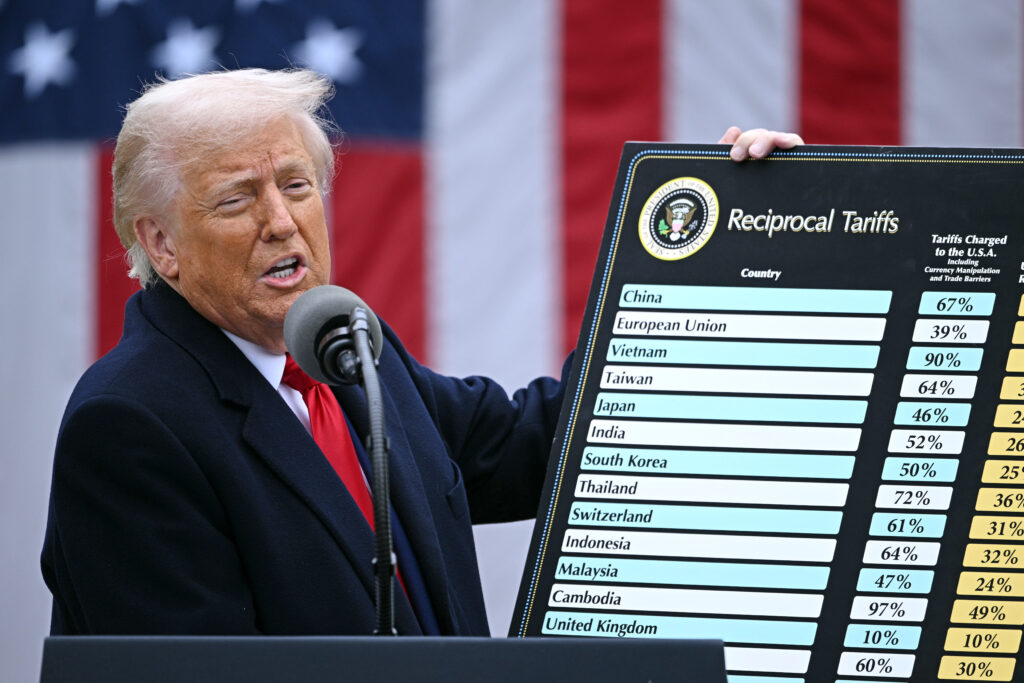Dans le nord du Maroc, des panneaux solaires flottants recouvrent progressivement un vaste réservoir, marquant l’avancée d’un projet pilote qui vise à réduire l’évaporation de l’eau tout en produisant de l’électricité verte pour le complexe portuaire de Tanger Med.Le Maroc est frappé par une grave sécheresse pour la septième année consécutive, “la plus longue de l’histoire” du pays, selon le ministère de l’Equipement et de l’Eau. La hausse des températures due au réchauffement climatique accentue le phénomène, provoquant une “forte évaporation” des réserves d’eau, particulièrement entre avril et septembre, alerte ce ministère. Fortes chaleurs et déficit pluviométrique ont fait chuter le taux de remplissage des barrages, sous les 35% en août.Entre l’automne 2022 et l’été 2023, une température moyenne supérieure de 1,8°C aux normales de saison avait provoqué l’évaporation de 542,6 millions de m3 d’eau, soit une moyenne journalière équivalant à plus de 600 piscines olympiques.Pour atténuer ces pertes, le ministère et une agence publique ont lancé fin 2024 un projet pilote au barrage de Tanger Med. Son principe: recouvrir une partie du réservoir de panneaux photovoltaïques flottants pour protéger la surface des rayons du soleil, tout en générant de l’électricité.Dans ce barrage, l’évaporation passe d’environ 3.000 m3 par jour en temps normal à près de 7.000 m3 par jour en été, explique à l’AFP Yassine Wahbi, un responsable local du ministère, misant sur une réduction du phénomène de 30% grâce à la couverture photovoltaïque. – “Pionnière” -Sur le bassin, plus de 400 plateformes flottantes, arrimées par des câbles plongeant jusqu’à 44 mètres de profondeur, accueillent déjà des milliers de panneaux solaires. A terme, plus de 22.000 unités photovoltaïques devraient recouvrir une dizaine d’hectares du plan d’eau de 123 hectares. Les panneaux produiront environ 13 mégawatts, ce qui contribuera à couvrir les besoins du vaste complexe portuaire de Tanger Med.Le projet dont le coût n’a pas été communiqué inclut aussi la plantation d’arbres sur les rives du réservoir pour lutter contre l’effet desséchant du vent.Pour Mohammed-Saïd Karrouk, professeur de climatologie, cette expérience est “pionnière” au Maroc mais le projet comporte certaines limites. Notamment parce qu’il est impossible de recouvrir intégralement le barrage en raison de sa vaste superficie et parce que le réservoir épouse les contours du terrain avec des variations du niveau d’eau qui pourraient endommager les panneaux.Selon M. Karrouk, il faudrait plutôt donner la priorité à une accélération du transfert de l’excédent d’eau des barrages du nord du Maroc – moins touchés par la sécheresse – vers les régions centrales et méridionales.Actuellement, le Maroc ne dispose que d’une seule infrastructure pour atteindre cet objectif, une “autoroute de l’eau” de 67 km, avec canaux et stations de pompage, entre le bassin du Sebou (nord-ouest) et l’agglomération de Rabat. Le dispositif devrait être élargi pour relier d’autres barrages du nord au centre du pays.- “Gain important” -Selon les données officielles, les apports en eau de pluie ont été presque divisés par quatre au Maroc ces dix dernières années par rapport aux années 1980, passant d’une moyenne annuelle de 18 milliards de m3 à cinq milliards.Pour le ministère de l’Equipement, même limitées, les économies d’eau obtenues grâce aux panneaux flottants constituent “un gain important dans un contexte de raréfaction croissante des ressources en eau”.Des études de faisabilité sont en cours pour lancer deux autres projets similaires: l’un à Lalla Takerkoust, près de Marrakech (centre), l’autre à Oued El Makhazine (nord), l’un des plus grands barrages du pays.Ailleurs dans le monde, la France, l’Indonésie et la Thailande testent également cette technologie et la Chine abrite déjà certaines des plus vastes centrales solaires flottantes, capables de produire des centaines de mégawatts.Au Maroc, le principal outil face au stress hydrique reste le dessalement de l’eau de mer, avec un objectif de 1,7 milliard de m3 par an d’ici 2030, contre environ 320 millions aujourd’hui.




